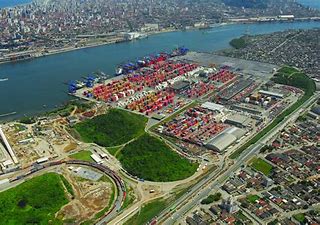Company will launch 5-MW plant in Vassouras, first of several projects at cost of R$250m
07/19/2022
/i.s3.glbimg.com/v1/AUTH_37554604729d4b2f9f3eb9ad8a691345/internal_photos/bs/2022/W/V/gSGBKBR2uUYnWWBdrNvA/140722sergioromani03.jpg)
Sergio Romani — Foto: Leo Pinheiro/Valor
Genial Energy, the energy arm of Genial Investimentos, has kicked off the operation of several distributed generation solar plants. At the end of July, the company will launch the first 5-megawatt plant in Vassouras, Rio de Janeiro. This will be the first of several projects totaling 50 MW at a cost of R$250 million, with conclusion foreseen for the first half of 2023.
Initially, the plants are expected to be located in the Light-Enel Rio concession area. Today Genial’s trading company has 278 clients that buy energy in the free market. However, the need to offer solutions to customers that require medium and low voltage power triggered the investment in distributed generation.
Genial Energy CEO Sergio Romani told Valor that the company will focus on customers who do not have the space or interest in setting up their own solar power generation structure. In this case, Genial leases a fraction of the plant to the customer to generate its own energy. The first plant has 60 clients with an average electricity bill of R$19,000.
The movement is not new. Many trading companies are diversifying their businesses beyond buying and selling power, and also offering services to consumers and generation companies. Genial Energy’s idea is to use the customer base of its investment platform to expand the business in the future.
“Genial Investments has a customer base of 878,000. The cost of acquisition is close to zero,” Mr. Romani says. “The first plant, which starts operating this month, will be in Light’s area. The reason for us to invest in Rio in this first phase was the low supply of projects in the region and the great demand from our customer base.”
At this moment, the executive says he is in talks with owners of plots of land over surface rights, with contracts of 25 years – extendable for 25 years more –, which will be used as underlying assets to issue real estate receivable certificates (CRIs).
The EBITDA is projected at R$130 million per year when everything is ready. The investment in the first plant was fully financed with the own capital. The company says it has invited some of Genial clients to expand the project to 100 MW in more than 20 plants. This investment will require R$500 million, 75% of which via debt, and will be made both with own capital and third-party capital.
“With the plants ready, the ticket is expected to fall so we can offer the product in the retail market, for residential consumers. To serve this market, Genial has created a specific solar company with its own online marketplace to support this operation.”
The company’s focus is on solar generation because it is more modular for retail when compared to other sources, and the execution time is shorter. The first plant will be connected to Light’s network.
Data from the Brazilian Association of Electricity Distributors show that the connection of distributed generation systems to the grid has doubled in two years. In 2020, almost 19,000 connections were made per month. The level has increased twofold to an average of 38,000 this year.
The utilities are complaining because when consumers migrate to distributed generation, they lose a portion of those customers who pay some fees included in electricity bills in Brazil. Light mulls opportunities for investments in new businesses in order to meet the needs of its customers. “The company is investing more than R$30 million in a distributed generation project to serve consumers in needy communities in the Metropolitan Region of Rio de Janeiro,” says Alessandra Amaral, Light’s head of energy, commercialization and regulation.
*By Robson Rodrigues — São Paulo
Source: Valor International

/i.s3.glbimg.com/v1/AUTH_37554604729d4b2f9f3eb9ad8a691345/internal_photos/bs/2022/5/7/j2pJBBTtGkZwH7UaldFw/19fin-100-jato-c6-img01.jpg)
/i.s3.glbimg.com/v1/AUTH_37554604729d4b2f9f3eb9ad8a691345/internal_photos/bs/2022/P/O/QHBEOXTPq4F7zbhWOuhw/ambev.jpg)
/i.s3.glbimg.com/v1/AUTH_37554604729d4b2f9f3eb9ad8a691345/internal_photos/bs/2022/t/s/B33UfYTJ6H6KPpuQEtlA/04emp-100-petrob-b3-img01.jpg)
/i.s3.glbimg.com/v1/AUTH_37554604729d4b2f9f3eb9ad8a691345/internal_photos/bs/2022/S/R/q7G41eTWADFtOAY6ATtw/18emp-100-publi-b7-img01.jpg)


/i.s3.glbimg.com/v1/AUTH_37554604729d4b2f9f3eb9ad8a691345/internal_photos/bs/2022/F/U/7TX49DRHmWdl3PCH44Gg/despegar-getty-images.png)
/i.s3.glbimg.com/v1/AUTH_37554604729d4b2f9f3eb9ad8a691345/internal_photos/bs/2022/G/i/H4PYH5RwOTly6K1XyCBw/fitch-credito-matt-lloyd-bloomberg.png)
/i.s3.glbimg.com/v1/AUTH_37554604729d4b2f9f3eb9ad8a691345/internal_photos/bs/2022/a/u/79ICyGTf6et2FYLF60lg/risco-brasil-silvia-zamboni-valor.png)